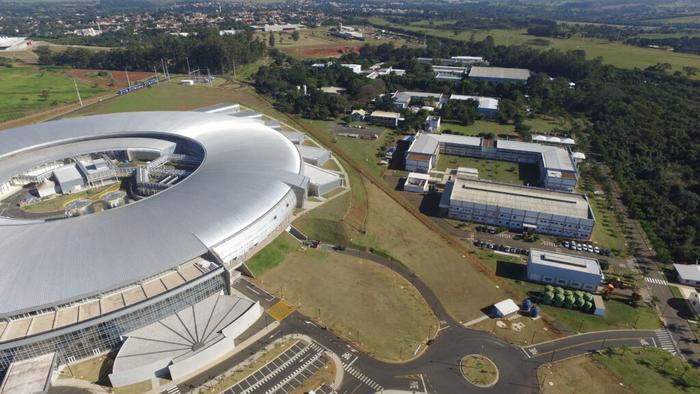Registrations are open for the São Paulo School of Advanced Science on 4th Generation Synchrotron Techniques (SyncLight 2024), to be held on October 14-25, 2024, at the Brazilian Center for Research in Energy and Materials (CNPEM) in Campinas, São Paulo state, Brazil

Credit: CNPEM
Registrations are open for the São Paulo School of Advanced Science on 4th Generation Synchrotron Techniques (SyncLight 2024), to be held on October 14-25, 2024, at the Brazilian Center for Research in Energy and Materials (CNPEM) in Campinas, São Paulo state, Brazil
Reporters are invited reach the organizing committee through the email [email protected], for opportunities to visit the school and sessions.
Organized through the São Paulo School of Advanced Science (SPSAS https://espca.fapesp.br/home/) program, with support from FAPESP (https://bv.fapesp.br/en/auxilios/113004/), the event aims to gather young researchers from Brazil and abroad to discuss the recent opportunities offered by advanced experimental synchrotron techniques available at Sirius, the Brazilian 4th generation light source based in Campinas.
Over the past decades, synchrotron light sources have played a significant role in the development of modern natural sciences and engineering. With a wide range of experimental techniques available, synchrotron light sources have revolutionized the way scientists study and characterize materials in the fields of Physics, Chemistry, Biology, Health, Energy, New Materials, Environmental Sciences, and many others.
The School will benefit from a roster of speakers comprising highly regarded researchers in the field, such as Ana Diaz, from Paul Scherer Institut (Switzerland); Guimei Wang, from the United States National Synchrotron Light Source II; Hoi-Ying N. Holman, from Lawrence Berkeley National Laboratory’s Advanced Light Source (USA); Tannaz Pak, from Teesside University (United Kingdom); Chris Jacobsen and Daniel Haskel from Argonne National Laboratory (USA); Kejin Zhou, from Diamond Light Source at the Harwell Science and Innovation Campus (UK); Tobias Schulli and Narayan Theyencher from European Synchrotron Radiation Facility (ESRF) in Grenoble, France, among others.
Approximately 100 applicants will be selected for the School – 50 from Brazil and 50 from other countries. The School’s target audience comprises researchers who have recently completed their graduation, Master’s/PhD students, and early career postdoc researchers. For two weeks, they will watch lectures covering a variety of topics including introduction to synchrotron accelerators and experimental techniques involving Sirius’s beamlines.
The event’s program includes lectures, poster sessions, and guided tours at the facilities. Tutorials on experiments conducted, demonstrations on the control of the accelerators, as well as data analysis and simulations at the beamlines of the Brazilian Synchrotron Light Laboratory (LNLS), taught by LNLS researchers, are also planned.
Candidates should check the required documentation and apply for the School at the School’s website (https://pages.cnpem.br/synclight2024/registration/) until April 15, 2024.
Registration for SyncLight 2024 is free of charge and the event’s official language is English. Students who live outside São Paulo state may apply for financial assistance to cover travel and accommodation expenses.




